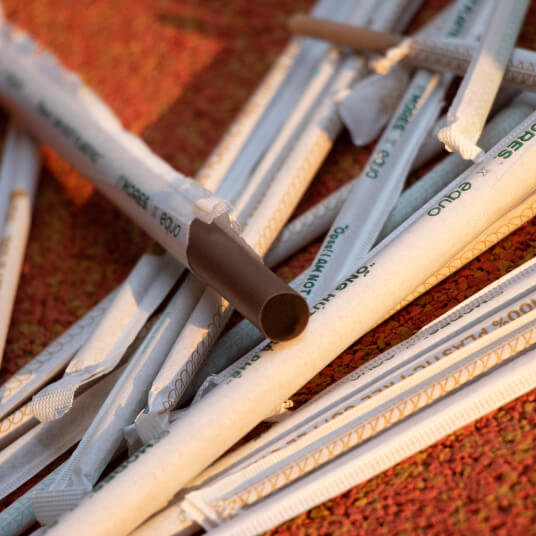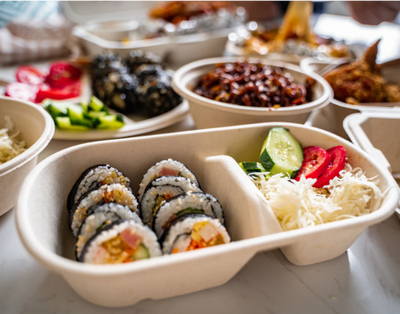The Need for Eco-Friendly Straws
Plastic pollution is a growing concern, especially in tropical countries where single-use plastics are heavily used in food and beverage services. With compostable straws entering the market as a sustainable alternative, the question arises: can these straws thrive and decompose effectively in the humid, warm conditions of tropical climates? In this post, we explore the effectiveness of compostable straws in tropical climates, focusing on materials that work best for home composting and how businesses can choose the right eco-friendly options.
What Are Compostable Straws?
Compostable straws are made from plant-based materials like sugarcane, coffee grounds, and rice husks, designed to break down naturally into organic matter without leaving harmful microplastics behind. Unlike biodegradable straws, which may only degrade to a certain extent, compostable straws are meant to be fully transformed into compost under the right conditions. This process reduces the impact of single-use plastics, making them a popular choice for environmentally conscious consumers.

Not All Biodegradable Straws Are Compostable
It's important to note that not all biodegradable straws are compostable. Biodegradable simply means that the material breaks down over time, but it does not necessarily turn into compost, which is rich in nutrients and beneficial for soil. Furthermore, some biodegradable straws require industrial composting facilities to break down properly, as they need higher temperatures and controlled conditions to decompose completely. In contrast, compostable straws made from materials like sugarcane, coconut, rice husk, and coffee grounds are designed to break down in home composting environments, making them more versatile and environmentally friendly.
How Tropical Climates Impact Composting
Tropical climates are characterized by high temperatures and humidity, which can accelerate the decomposition process. However, this doesn’t always guarantee optimal composting conditions. Factors such as:
-
Airflow: Proper aeration is needed for composting, and stagnant tropical air can slow the process.
-
Moisture Balance: Excessive humidity might make the compost pile too wet, potentially delaying the breakdown of materials.
-
Microbial Activity: Warm temperatures encourage microbial growth, which is crucial for breaking down compostable straws.
EQUO's Compostable Straws: Designed for All Climates
EQUO's compostable straws, made from sugarcane, coffee grounds, and rice husks, are specifically designed to decompose naturally within one year, even in tropical climates. Here’s why they work:
-
Durability in Use: These straws remain sturdy in cold and hot beverages, unlike paper straws, which often fall apart.
-
Natural Breakdown: The materials used in EQUO straws allow them to break down efficiently in backyard composting or even in natural environments like soil and water.
-
No Microplastics: Unlike PLA straws, EQUO’s straws decompose fully without leaving harmful residues.
Benefits of Compostable Straws in Tropical Regions
-
Reduced Plastic Waste: Compostable straws help minimize reliance on single-use plastics and reduce pollution.
-
Faster Decomposition: Tropical environments with their higher temperatures can speed up the breakdown of compostable materials, allowing straws to decompose more quickly.
-
Safe for Wildlife: Compostable straws that don’t leave microplastics protect marine and terrestrial wildlife, reducing long-term harm to ecosystems.
Challenges to Address
While compostable straws work in tropical climates, a lack of proper waste segregation and composting facilities can limit their impact. Many regions still lack effective composting programs, which can result in these straws being disposed of improperly, negating their benefits. Encouraging businesses and governments to adopt proper disposal practices and composting systems is essential for maximizing the environmental advantages of compostable straws.
Why Choose EQUO Compostable Straws?
By choosing EQUO’s plant-based straws, businesses and individuals in tropical regions can contribute to a greener planet. These straws are durable, eco-friendly, and proven to work even in challenging climates. They break down naturally in backyard composting systems or the environment, making them an ideal solution for regions striving to reduce plastic waste.



